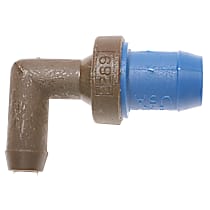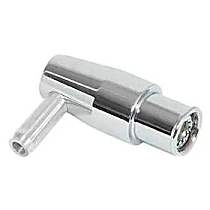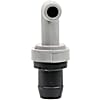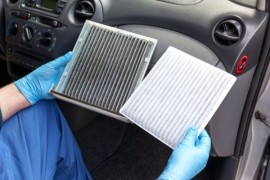{
"lazyNodes": false,
"abFitnotesFlag": false,
"abCrawlReviews": false,
"productOptionsCookie": false,
"orderDelayFlag": false,
"skipSessionCookie": false,
"covidMessage": false,
"fullTitleCookie": false,
"nrLoggerCookie": false,
"checkoutReviewCookie": false,
"productOptionSeqCookie": false,
"maintenanceFlag": false,
"bufferETACookie": false,
"multiShippingDiscountFlag": false,
"newFitmentFlag": false,
"surveyOptInFlag": false,
"crossSellFlag": false,
"skuMappingFlag": false,
"paySplitCookie": false,
"callDisableFlag": false,
"zipPaymentFlag": "u",
"hassleFreeReturn": false,
"lifetimeReplacement": false,
"cpn_off": false
}Isuzu VehiCROSS PCV Valves
Shop Catalog
![]() WARNING: This product can expose you to chemical which is known to the State of California to cause cancer and birth defects or other reproductive harm. For more information go to www.P65Warnings.ca.gov.
WARNING: This product can expose you to chemical which is known to the State of California to cause cancer and birth defects or other reproductive harm. For more information go to www.P65Warnings.ca.gov.
![]() WARNING: This product can expose you to chemical which is known to the State of California to cause cancer and birth defects or other reproductive harm. For more information go to www.P65Warnings.ca.gov.
WARNING: This product can expose you to chemical which is known to the State of California to cause cancer and birth defects or other reproductive harm. For more information go to www.P65Warnings.ca.gov.
![]() WARNING: This product can expose you to chemical which is known to the State of California to cause cancer and birth defects or other reproductive harm. For more information go to www.P65Warnings.ca.gov.
WARNING: This product can expose you to chemical which is known to the State of California to cause cancer and birth defects or other reproductive harm. For more information go to www.P65Warnings.ca.gov.
![]() WARNING: This product can expose you to chemical which is known to the State of California to cause cancer and birth defects or other reproductive harm. For more information go to www.P65Warnings.ca.gov.
WARNING: This product can expose you to chemical which is known to the State of California to cause cancer and birth defects or other reproductive harm. For more information go to www.P65Warnings.ca.gov.
Popular Products
Customer Guides
Top Isuzu VehiCROSS PCV Valve Problems and the Reasons behind Them
Did you know that your Isuzu VehiCROSS has its very own recycling machine? Apart from your exhaust system, your Isuzu SUV has another eco-friendly component in the form of the positive crankcase ventilation valve or PCV valve. This valve is tasked to re-circulate or recycle the unburned or partially burned gases and fresh air, so they can be reused in the combustion chambers. In its best shape, your Isuzu VehiCROSS PCV valve increases fuel efficiency and enhances your vehicle's accelerating power. But if the PCV valve goes bad, your fierce SUV is prone to having these problems:
Poor engine performance
If you are experiencing some negative changes in your Isuzu VehiCROSS' engine performance, you may want to check your vehicle's PCV valve. A defective Isuzu VehiCROSS PCV valve has the tendency to not close properly. This causes excess oxygen to go inside the combustion area where it alters the proper air to fuel ratio. Changes in the air and fuel mixture often results in "lean" or "rich" fuel mixture. These mixtures are detrimental to your engine's health because they often lead to frequent engine stalling, poor or slow acceleration, rough idling, misfires, and total engine failure. Once you see any of these signs on your SUV, you must replace your PCV valve as soon as possible.
Clogging and oil leakage
Oil leakage is another sign of PCV valve failure. When the valve fails to release the excess pressure in the crankcase, leaks in the hoses and connections attached to PCV valve may occur. This will cause the oil from the engine to enter into the vehicle's air filter. Although the air filter can still be cleaned, it is advisable to replace the damaged PCV valve to prevent further air filter contamination. You also need to check the seals and gaskets on the engine for damage or leaks and replace them if needed. Clogging in the PCV valve, on the other hand, can be detected by removing it from the engine block and shaking it back and forth. If you hear rattling noises as you shake the valve, it is absolutely clog-free. But if the valve produces no noise while you shake it, you should replace it immediately.
Other troubleshooting tips
Another way to test if your Isuzu VehiCROSS PCV valve is in excellent condition is by blowing compressed air through the valve's opening. If the air was able to pass through in just a single direction, your PCV valve is fine. However, if the valve lets air pass through in both directions or if there's no air at all, replacing your stock is absolutely necessary. Aside from the symptoms that were mentioned, you also need to watch out for other signs of PCV valve failure like physical damage, decrease in gas mileage, and increase in crankcase emissions.
Your Isuzu VehiCROSS PCV valve is just like a vacuum cleaner. If its container is already filled with dust and dirt, and if its tube and hose are clogged up with contaminants, it will no longer be efficient in cleaning your house. The same goes for your SUV's PCV valve. Its efficiency in recycling unburned or partially burned gases will be compromised if its body and tubes are filthy or damaged. To help you out, here are a couple of practical tips in keeping your Isuzu VehiCROSS PCV valve in tiptop shape:
Keep the PCV valve clean and clog-free.
In reality, cleaning your Isuzu VehiCROSS PCV valve cannot really stop its impending doom. The valve assembly's spring and poppet will still deteriorate, but the good part is that regular cleaning can actually extend your stock's life span for at least a year or an equivalent of 10,000 to 12,000 miles. Experts suggest cleaning the PCV valve every 20,000 miles to improve its efficiency in recycling unburned and partially burned gases, which eventually increases your vehicle's gas mileage. In cleaning the PCV valve, you may use either a carburetor cleaner or an engine degreaser. You also need to use compressed air to blow off loose debris and other contaminants from the valve and its tubes. If you don't have an air compressor, you may use a can of compressed air as an alternative.
Check the PCV valve for damage.
Physical damage is one of the top causes of failure in most Isuzu VehiCROSS PCV valves. This is often due to old age or high-intensity impacts during road accidents. Considering this, you need to examine your vehicle's PCV valve for damage regularly, ideally at least once a year. You can start with the valve's plastic component. It is very vulnerable that dropping an unnecessary item inside can already cause the plastic to crack. You also need to examine the vacuum tubes connected to the PCV valve. The tube's rubber material tends to crack over time. In case you see any sign of damage on these parts, replace your stock immediately. Just remember not to put too much pressure on the valve while removing or installing it, for it can also break the plastic.
Replace, replace, replace.
Since your Isuzu VehiCROSS PCV valve is exposed to harsh working conditions on a regular basis, experts recommend replacing it during the SUV's scheduled tune-ups or at least every 50,000 miles. Changing your vehicle's PCV valve from time to time will guarantee your engine's excellent performance and efficient fuel combustion. In replacing the PCV valve, you need to be sure that the replacement unit is specific to your vehicle make and model. Getting a wrong-sized valve will give your engine too much or too little airflow, which will absolutely alter the prescribed air to fuel ratio.











